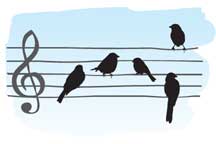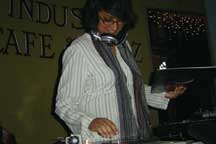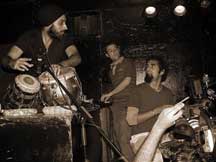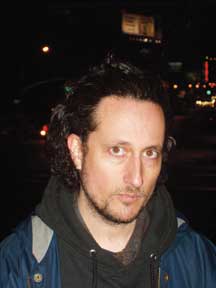Arts
The Five Mutineers

Progressive Desi DJ Collective Celebrates Ten Years of Groundbreaking Music
|
Ah, autumn in New York. That delicate season mercifully wedged between summer (too humid) and winter (too cold). A time marked by turning, tumbling foliage in Central Park, and hot apple toddies by the Hudson River. It’s romantic, it’s inspired. And on this particular November night, it happens to also be perfectly brisk-great news for the army of coat checkers currently marching across the island of Manhattan. They’re the unsung heroes of New York City nightlife really, sacrificing their weekends to fearlessly guard the outerwear of the party-going public.
Armel Choula, a college student from Cameroon, is one such hero. Tonight, she’s in the basement of a nightspot called the Madison, where she has her hands full. Literally. Buried in a mass of pea coats and bomber jackets, she says she’s been a coat checker for two years now. “This is a nice way to earn some extra money on the weekends,” she smiles. “But sometimes it can be hard work. People can get very aggressive.” Choula has her work cut out for her this evening. That’s because the Madison is expecting a capacity crowd. It’s hosting a tenth anniversary celebration bash for Mutiny–the progressive desi DJ collective credited with introducing New York City to the sounds of South Asian electronica. The five member DJs – Anju, Navdeep, Rekha, Siraiki and Zakhm – first became a unit in November of 1997, but haven’t performed together in over four years. Their reunion is highly-anticipated. Now normally, a group of DJs hooking up for a night of music might not make for big news. But this crew is different. They aren’t the rent-a-DJs who spun at your cousin’s shaadi last summer. Instead, they’re fierce, hard-driving, politicized turntablists; serious artists responsible for challenging the way New York thinks about South Asian music. Their decks run on fire, guts, and a whole lot of passion. And tonight, their mission is nothing less than aural insurgency. Hey, Mr. DJ!
The club used to be called Eugene’s. It’s a favorite of Hollywood location scouts looking to capture the feel of an authentic Manhattan nightclub. The television series Law and Order, and Sex and the City have both used the bar as a backdrop. The movies Boiler Room and, more recently, American Gangster filmed here too. Eugene’s has undergone some changes since then and is now divided into the gritty, urban Madison, and Gypsy Tea, its sanitized sister next door. Tonight, a super sweet 16 bash is being held at the latter. That means an endless gaggle of high schoolers can be seen tottering into the club, drenched in alcohol, their every movement loud and exaggerated. “Some family called the Van Burens dropped a lot of money for this,” says Pradeepa Jeeva, as she gestures toward the neighboring club. Jeeva is one of the organizers of the Mutiny reunion. She also helps run DJ Rekha’s production company Sangament. Back in November of 1997, it was Rekha Malhotra who launched Mutiny in collaboration with DJ Siraiki (Vivek Bald). “It grew from shared connection Rekha and I had to certain South Asian musicians coming out of Britain in the early 90s,” explains Bald. “Artists on the margins of both the Bhangra and mainstream British music scenes, who were directly engaged with anti-racist activism. We both started collecting this music and would trade songs back and forth. Eventually I started working on the film Mutiny: Asians Storm British Music, focusing on these groups.” The event was originally meant to serve as a fundraiser for Bald’s film. It was intended to have a limited run until, quite unexpectedly, it began transforming into something much larger. For six years, the Mutineers gathered their vinyl and convened monthly, often at a place called the Frying Pan – a boat anchored at Pier 63 on the west side of the city. Word spread, turnout continued to build, and long after Mutiny the film hit screens in 2003, Mutiny the party powered on.
“There really wasn’t anything like it at the time,” says DJ Navdeep, one of the founders. “It became a scene that was outside the realm of mainstream desi parties of the ’90s. It became a space for people to really express artistically what they were feeling.” “The crowds really enjoyed it,” adds DJ Anju, a fellow Mutineer. “It was the first party in the US to bring South Asian electronica to audiences live. We brought in performers from the UK, from India. It was a new niche for music. We weren’t playing, you know, Bollywood or film songs, or straight-out Bhangra necessarily.” Over the years the crew played host to some real artistic innovators. People like Nitin Sawhney, Karsh Kale, the Midival Punditz and Asian Dub Foundation. Mutiny defied genre. It became the New York underground club destination for electronica aficionados interested in the cutting-edge. A place where furious drum n’ bass beats were introduced to jungle, hip hop, garage, and, significantly, classical and folk Indian sounds in ways that not only resonated with second generation desis, but that also appealed to a broader crowd. The vibe was fresh and fierce and New Yorkers were eager to embrace it. Progressive Beats Hit the Streets
Well she got one, and can now be seen inside, perched on a black leather couch, cocktail in hand. Rizvi, who grew up in the Middle East and Sri Lanka, is a fan of desi electronica. She admits that Talvin Singh is part of the reason she’s here today (he’s listed as the special guest). “I’ve been following him since 1996,” she explains. “And I think what he’s done is very necessary. He’s created music that fuses everything: ideology, sound, philosophy, just a way of being. His music is what I, as an Asian, really needed to hear growing up.” If that sounds oddly deep to be coming from a Saturday night club-goer, that’s because it is. But it’s also somewhat standard for this scene. Mutiny has always been about bringing artists like Talvin Singh to the masses, yes, but it has also been about using music to make a point. For years, it has been the nightlife option for cerebral folks with an interest in social justice. “From the start we tried to build an audience that wasn’t just South Asian, but was diverse along every possible line,” explains Bald. “We tried to maintain a space that felt safe for women and members of the queer community.” Mutiny positioned itself as a place where social and community activists could convene. It hosted fundraisers, championing causes that were political, often controversial. It also exercised a strict policy against the use of religious imagery on flyers and visuals. The kinds of images, says Bald, “that have typically been used to cater to Western Orientalist fantasies of the spiritual and exotic East.” Of course, it wasn’t just the space that was progressive, but the music Mutiny helped showcase. Many of the featured tracks had explicitly political lyrics. And Bald says the group always remained interested in “pushing people’s expectations.” Well tonight, ten years later, there is a club full of people ready to thank them for all that. The Madison is almost at capacity now and, predictably, Arnel the coat checker hasn’t had a moment’s rest. The crowd seems more arty perhaps, more mature definitely than what you’d see on a standard night out. But this is no standard night. Many who are here have come out of respect for Mutiny’s legacy and vision; out of respect for the club night that almost never was-and how it not only transformed people’s perceptions of what “desi music” is, it gave that music a home. Now, as the crew members take turns behind the decks, tucked into an elevated shrine of a DJ booth, there is a near-palpable reverence that falls over the crowd. Mutiny has done much more than what it set out to do a decade ago. And for that a generation of desi Americans is very, very grateful. “They have provided people like us, who are sort of bridged between two worlds, some kind of affirmation,” says Anne Rizvi, smiling. “They’ve given us some kind of peace. They’ve given us some kind of place.”
|





You must be logged in to post a comment Login